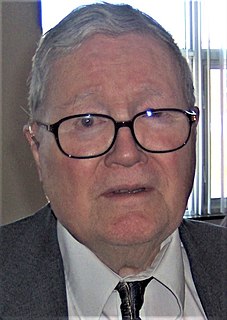A Quote by Henry Giroux
It has been difficult for [young people in the U.S.] to connect the dots between rising tuition costs and other assaults on their dignity with the ongoing assault on public life and its myriad democratic institutions. Today's generation faces an enormous battle in turning back the current assaults on the social state, higher education, and the social good.
Quote Topics
Assault
Back
Battle
Been
Between
Connect
Costs
Current
Democratic
Difficult
Dignity
Dots
Education
Enormous
Faces
Generation
Good
Higher
Higher Education
Institutions
Life
Myriad
Ongoing
Other
People
Public
Public Life
Rising
Social
Social Good
State
Today
Today's Generation
Tuition
Turning
Young
Young People
Related Quotes
The nature of the issues facing U.S. students is a bit more complicated in the U.S. because the assault on the social state, until recently, has been more incremental [i.e. the stripping of public services and so forth], whereas in Britain with the rise of the conservative-liberal government, it was immediate and bold in its assault on the social state and higher education.
The demise of higher education as a public good is also evident in light of the election of a number of right-wing politicians who are cutting funds for state universities and doing everything they can to turn them in training centers to fill the needs of corporations. This new and intense attack on both the social state and higher education completely undermines the public nature of what education is all about.
Against the tyranny of forgetting, educators, young people, social activists, public intellectuals, workers and others can work to make visible and oppose the long legacy and current reality of state violence and the rise of the punishing state. Such a struggle suggests not only reclaiming, for instance, education as a public good but also reforming the criminal justice system and removing the police from schools.
Student loans have been helpful to many. But they offer neither incentive nor assistance to those students who, by reason of family or other obligations, are unable or unwilling to go deeper into debt. ... It is, moreover, only prudent economic and social policy for the public to share part of the costs of the long period of higher education for those whose development is essential to our national economic and social well-being. All of us share in the benefits - all should share in the costs.
Men have looked away from themselves and at things so long that they have come to esteem the religious, learned and civil institutions as guards of property, and they deprecate assaults on these, because they feel them to be assaults on property. They measure their esteem of each other by what each has, and not by what each is.
Young people today are being robbed. Of their rights. Of their freedom. Of their dignity. Of their futures. The culprits? My generation and our predecessors, who either created or failed to stop the world straddling engine of theft, degradation, manipulation, and social control we call the welfare state.
Higher education isn't just a personal investment. It's a public good that pays off in a more competitive workforce and better-informed and engaged citizens. Every year, we spend nearly $100 billion on corporate welfare, and more than $500 billion on defense spending. Surely ensuring the next generation can compete in the global economy is at least as important as subsidies for big business and military adventures around the globe. In fact, I think we can and must go further - not just making public higher education tuition-free, but reinventing education in America as we know it.
University presidents should be loud and forceful in defending the university as a social good, essential to the democratic culture and economy of a nation. They should be criticizing the prioritizing of funds for military and prison expenditures over funds for higher education. And this argument should be made as a defense of education, as a crucial public good, and it should be taken seriously. But they aren't making these arguments.
I believe I have demonstrated that the voters are characteristically ill-informed when voting on reducing social costs. Furthermore, their primary concern is with wealth transferred to themselves, rather than with social cost efficiency. Logically, this would mean that democratic government would be inefficient in reducing social costs.
We are moving in exactly the wrong direction in higher education. Forty years ago, tuition in some of the great American public universities and colleges was virtually free. Today, the cost is unaffordable for many working class families. Higher education must be a right for all - not just wealthy families.
A society which makes provision for participation in its good of all its members on equal terms and which secures flexible readjustment of its institutions through interaction of the different forms of associated life is in so far democratic. Such a society must have a type of education which gives individuals a personal interest in social relationships and control, and the habits of mind which secure social changes without introducing disorder.































